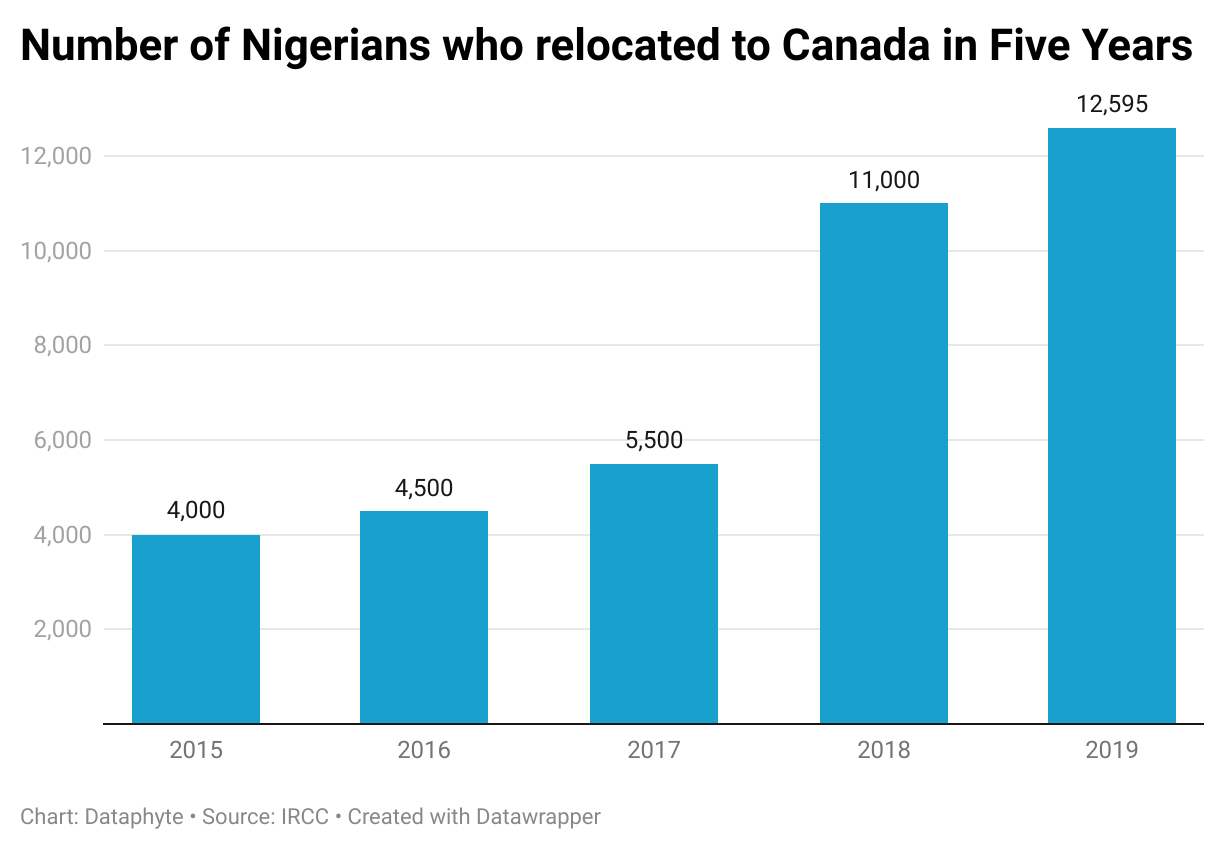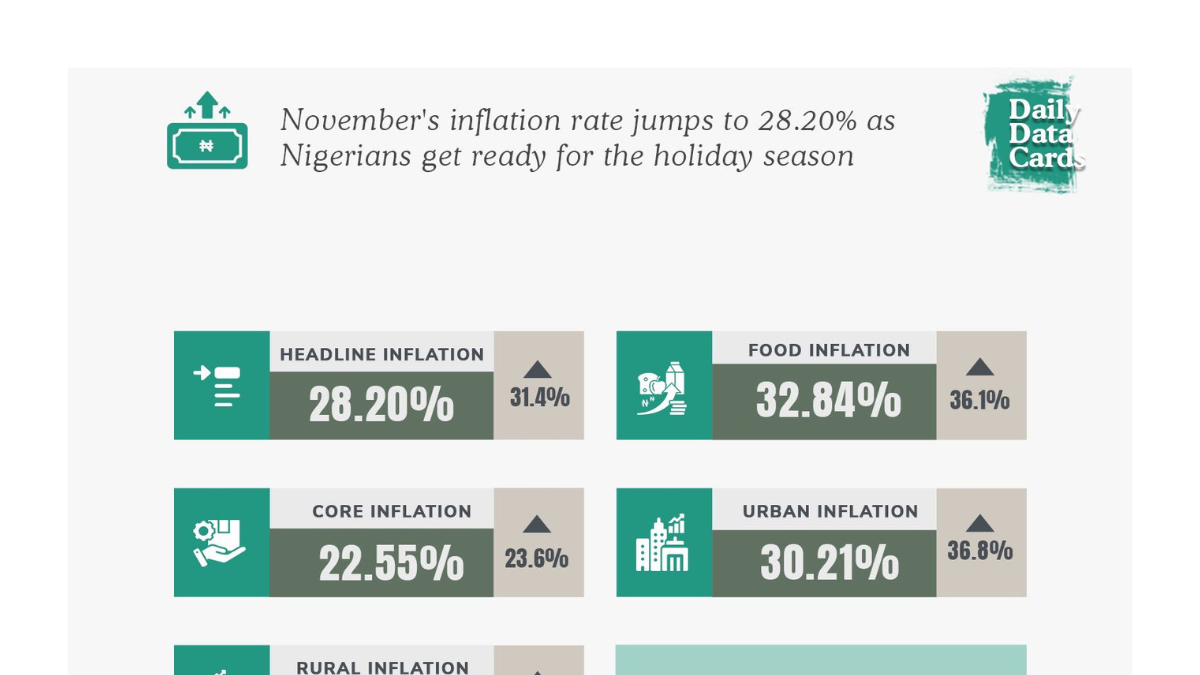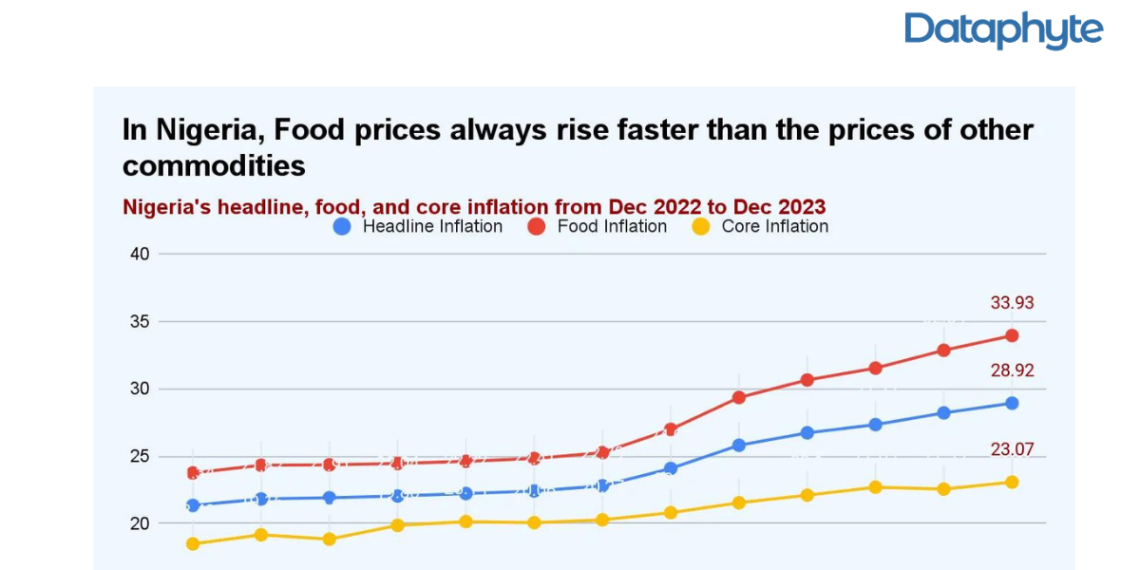Data from the Immigration, Refugees and Citizenship Canada (IRCC) shows that 12,595 Nigerians relocated to Canada in 2019.
Today, the dream of almost every young Nigerian is to leave the country. In fact, as it stands, as a young professional in the country, if you have not commenced your own immigration process, you begin to wonder if something is wrong especially when you see or hear your friends and colleagues resign from their jobs, sell their valuable properties, just to leave the country.
A survey conducted by Pew Research in 2018 showed that almost half (45%) of Nigeria’s adult population plans to relocate to another country within five years. Among the 12 countries surveyed across four continents (Africa, Asia, Europe and North America), Nigeria recorded the highest share of its adult citizens who have plans to move to another country.
Nigerians may have even taken Naira Marley’s song titled Japa (a Yoruba slang for escape) as a literal call to action, as data indicates that the number of those who planned to relocate last year surpassed those who want to stay back.
In 2021, the number of Nigerians who planned to move abroad with their family if the opportunity was available was placed at 73%, that is more than 7 in every 10 Nigerians are ready to leave the country, and Canada, the United States, and United Kingdom top the list of their migratory destinations. Others include Australia, Germany, Spain, Italy and South Africa.
The immigration of Nigerians did not actually start today. It dates back to the 1950s and 1970s when the elites and privileged middle class went to countries like the United Kingdom and the United States for education, business and work. While the majority of them readily returned to the country then, because of the booming economy and plum jobs, today, the reverse is the case as African Polling Institute (API) noted from the survey they conducted that Nigerian students in Canada are now staying abroad longer after they graduate.
Beyond those who stay longer after their studies, there are also those who are currently at home wanting to immigrate due to the poor state of Nigeria’s economy and other factors which are fingered as the major reasons for relocation.
The surge in the number of Nigerians who relocated to Canada between 2015 to 2019 and the reasons listed for their relocation attests to this fact.
 Number of Nigerians who relocated to Canada in five years
Number of Nigerians who relocated to Canada in five years
Records from the IRCC show that 4,000 Nigerians were issued permanent resident permits in 2015. By 2019, the number of permanent resident permits issued rose to 12,595, an increase of 214.9%.
Why are Nigerians Relocating?
For migration to happen, there is usually a push or pull factor at play. A BBC article classified these factors into economic, social, political or environmental.
In the case of Nigeria, it may not be difficult to point to the factors responsible for the mass relocation and burning desires of many of the citizens wanting to leave, especially when the socioeconomic situation is put into perspective.
The findings from the API survey explains it better. The survey highlighted five major reasons as the push or pull factor for Nigerians relocation abroad (to be specific, Canada).
These factors include the desire for better career opportunities, heightened insecurity in the country, the desire to provide a better future for their children, the need for further education and poor governance in the country.
To better understand these reasons highlighted, one may have to look at some of Nigeria’s socio-economic data.
Nigeria’s most recent Labour Force Statistics reveals limited employment opportunities as the country’s unemployment rate rose five-fold (from 6.4% to 33.3%) between 2010 and 2020.
Without a doubt, unemployment creates or increases the chances of poverty, and a rise in unemployment as seen with Nigeria’s unemployment figure means more people are pushed under the poverty line. Many citizens are left with little or zero income to meet living expenses and/or create a better future for themselves and their children (for those who have kids). The fear of poverty and the desire to provide a better future for their children, which is at least the wish of every good parent, no doubt pushes many people [Nigerians] to relocate.
Besides the issue of people having little or zero income as a result of unemployment, the problem of inflation is the second edge of the double-edged sword. Nigeria has recorded a two-digit inflation figure in the last 5 years, making life almost impossible for the average Nigerian as prices of goods and services required for everyday living are almost unaffordable. Unemployment and Inflation is a marriage that births many children below the poverty line.
Nigeria has had security challenges for a long time. However, in recent times, the insecurity level has become a major concern with the death toll in just 9 months reaching 8,281 and 3,490 persons kidnapped in only 8 months in 2021.
With terrorism, banditry, kidnapping on the rise, for many, especially those that can afford it, leaving/relocating to a much safer place becomes the only option.
Given Nigeria’s current socio-economic situation, worsening security challenges and the continued search for opportunities that appears to be almost non-existent in the country, the emigration of Nigerians especially the youths may likely not end anytime soon.
The government may have to be more deliberate with policies that will drive growth and development to make Nigeria an attractive place to live in.



 Number of Nigerians who relocated to Canada in five years
Number of Nigerians who relocated to Canada in five years
-1706986590.webp)
